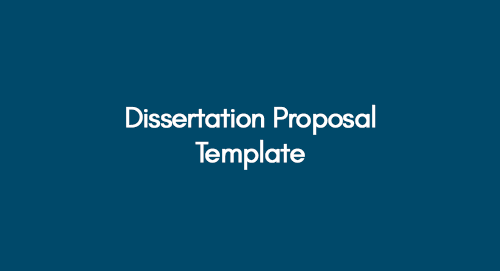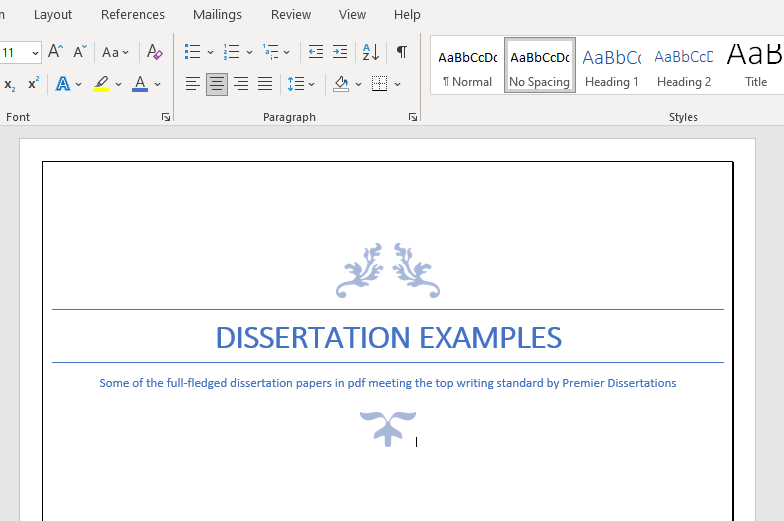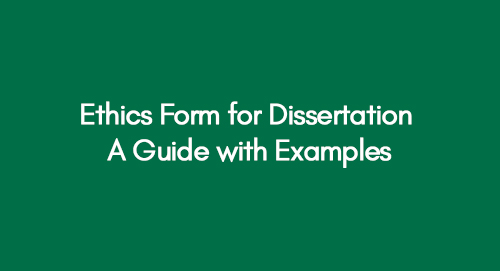
Dissertation Proposal Template
May 22, 2023
Mastering the Art of Abstract Writing: A Comprehensive Guide
May 23, 2023Reflective writing is a powerful tool for exploring our thoughts, emotions, and experiences. It bridges the inner self and the outer world, allowing us to investigate our perceptions and gain valuable understandings.
Review Our Quality Dissertation Examples
Get 3+ Free Dissertation Topics within 24 Hours
A journey of reflective writing explores various examples that highlight its transformative power and its ability to foster personal growth.
With this guide, you can write a successful dissertation in no time! Also, you can visit our dissertation examples below:
Example 1: Effects of Virus on Hospitality and Tourism
Example 2: Impact of Leadership Style on Professional Satisfaction of Nurses: A Case Study
Note: Below is a complete guide with some more examples and tips for you to ace the skill of dissertation writing.
Reflection Writing Examples
So, let's dive into the captivating world of writing a reflection example and be inspired by these!
A Journey of Self-Discovery: Unveiling Identity Layers reflective writing peels back the layers of identity, revealing a beautifully complex tapestry of experiences and aspirations.
Lessons from Failure: Turning Setbacks into Stepping Stones reflective writing transforms failures into valuable lessons, propelling the team forward on the path to success.
Embracing Vulnerability: Finding Courage in Fear's Midst, reflective writing allows us to embrace vulnerability, shedding armour and discover authenticity's strength.
The Ripple Effect: How Small Acts of Kindness Create Waves of Change reflective writing shows the profound impact of even the smallest acts of kindness and motivates us to make a difference in the world.
Nature's Wisdom: Finding Serenity and Enlightenment in the Great Outdoors it immerses in nature's wonders, revealing its profound wisdom and offering solace in times of turmoil.
The Power of Empathy: Walking in Others' Shoes and Nurturing Connection this writing cultivates empathy, allowing us to step into others' shoes and forge deeper connections rooted in compassion and understanding.
Mindfulness in the Modern World: Cultivating Peace in a Hectic Life it guides us on a mindfulness journey and teaches us to find moments of peace and presence amidst daily chaos.
Embracing Imperfections: Celebrating the Beauty of Being Human to embrace the flaws and recognise the true beauty and growth that emerge through imperfection.
Note: These examples of reflective writing are short and engaging, capturing the essence of reflective writing. However, providing a more detailed and thoughtful exploration of each topic in a complete reflective essay is imperative.
Style of Reflection Writing Paper Format
When it comes to formatting a reflection writing paper, it is important to follow the guidelines provided by your instructor or institution. However, in the absence of specific instructions, you can generally follow a standard academic paper format. Here's a suggested format for a reflection writing paper:
Title Page
- Include the title of your paper, your name, course name/number, instructor's name, and the date of submission.
Introduction
- Begin with a captivating opening sentence or hook to grab the reader's attention.
- Provide a brief overview of the experience or topic you will be reflecting upon.
- Clearly state the purpose of your reflection and the main thesis or argument you will explore.
A Guide on How to Write an Introduction Paragraph
Body Paragraphs
- Organise your reflection into several paragraphs, each focusing on a specific aspect or theme related to your experience or topic.
- Use clear topic sentences to introduce each paragraph's main idea.
- Provide detailed descriptions, personal reflections, critical analysis, and insights in each paragraph.
- Support your reflections with specific examples, anecdotes, or evidence from your experience.
Conclusion
- Summarise the key points discussed in your reflection.
- Restate your main thesis or reflection in a concise and impactful manner.
- Offer final thoughts or reflections on the significance of your experience and its impact on your personal growth or learning.
How to write a good conclusion
References
- If you have cited any external sources or references in your reflection, include a list of these sources in a separate "References" section.
- Follow the appropriate citation style, such as APA and MLA, for formatting your references.
Formatting Guidelines
- Use a legible font (such as Times New Roman or Arial) with 12-point font size.
- Double-space the entire document.
- 1-inch margins on all sides of the paper.
- Use paragraph indentation (typically half an inch) for each new paragraph.
- Include page numbers in the header/footer of each page.
Remember, it's always a good idea to check with your instructor or consult your institution's writing guidelines for any specific formatting requirements they may have.
Conclusion
Reflective writing is the art of writing that takes us on a deeply introspective journey. This allows us to uncover hidden truths, heal emotional wounds, and embrace personal growth. Through the examples shared in this blog, we have witnessed the transformative power of reflective writing in various contexts.
Get 3+ Free Dissertation Topics within 24 hours?



























